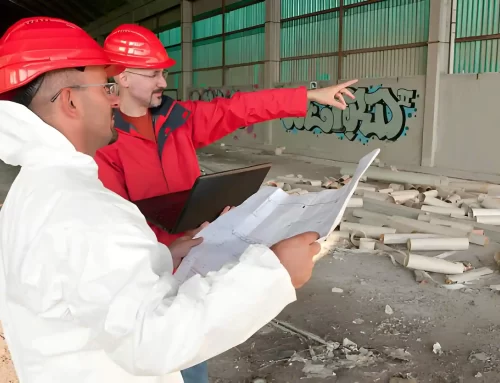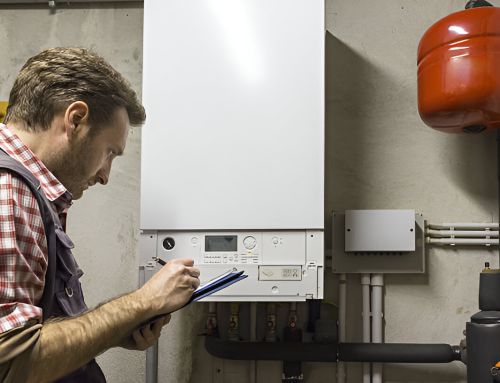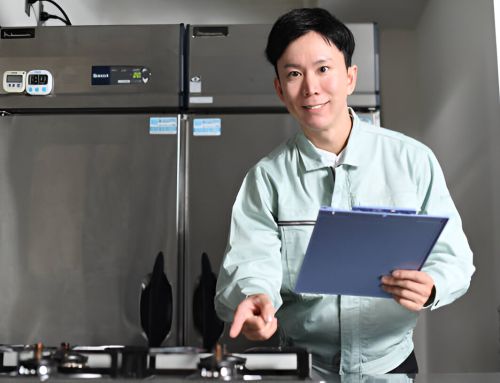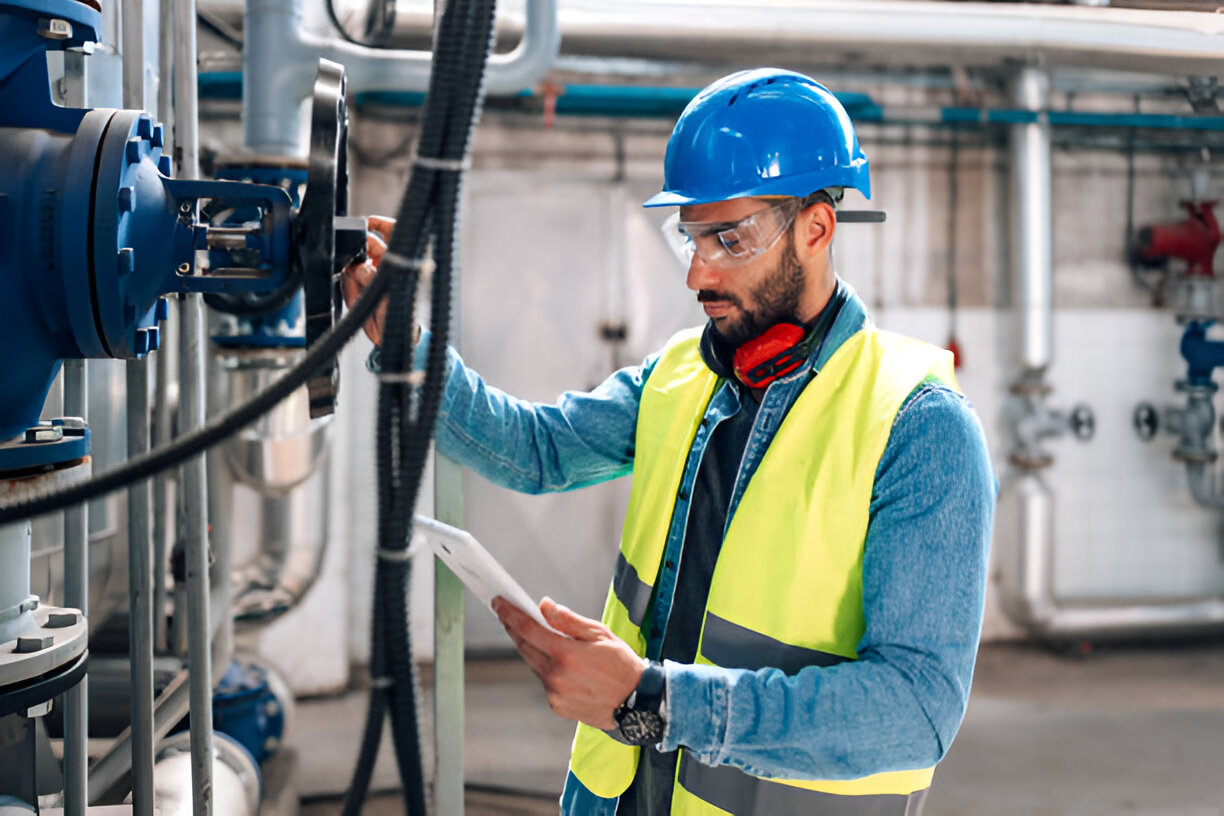
The CP42 Gas Certificate serves as an essential safety assurance for businesses using gas appliances. It is more than a regulatory obligation; it helps protect employees and the public. Many sectors, such as hospitality and education, are required to follow these standards. Understanding the significance of this certification and the process to achieve it can greatly improve safety and compliance in operations.
Key Takeaways
- A CP42 Gas Certificate is essential for commercial entities using gas appliances, ensuring compliance with safety regulations and legal standards.
- The certificate is mandatory for industries like hospitality, healthcare, and education, promoting safety for employees and the public.
- Regular inspections by Gas Safe registered engineers are required to maintain certification and ensure the safe operation of gas appliances.
- Non-compliance can lead to legal repercussions, including fines, liability for damages, and potential revocation of business licenses.
- Without a CP42 certificate, businesses risk denied insurance claims, exposing them to significant financial liabilities in case of incidents.
What Is a CP42 Gas Certificate and Why Your Business Needs One
A CP42 Gas Certificate is an essential document for businesses using gas appliances. It confirms that a qualified Gas Safe registered engineer has inspected and tested the gas systems in a commercial property, ensuring they meet safety standards. The certificate verifies that appliances like boilers, cookers, and heaters operate safely and efficiently.
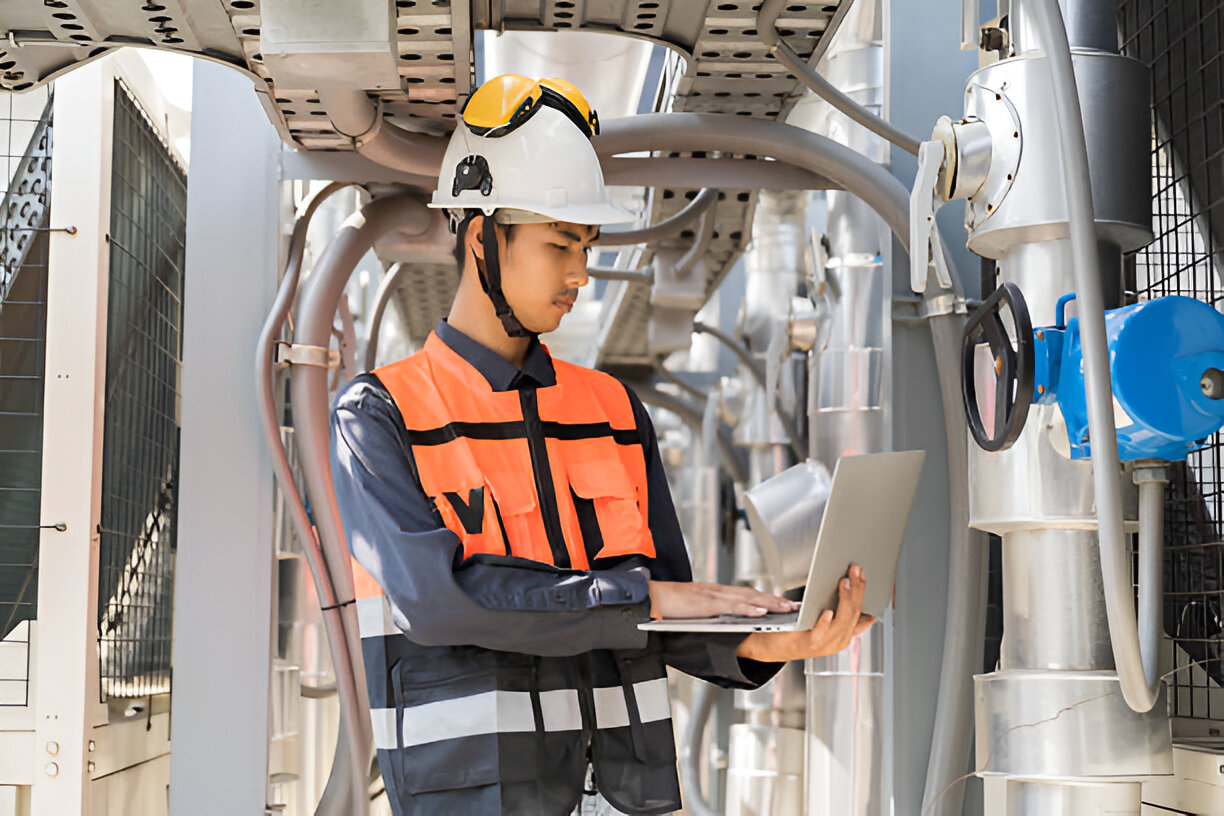
The CP42 Gas Certificate is fundamental because it improves employee and customer safety and shields the business from legal risks.
In case of an incident, having a valid CP42 is integral as it serves as evidence of compliance with safety standards. Moreover, many insurance policies mandate proof of gas safety certification, making it a key element for operational compliance.
Who Is Legally Required to Have a CP42 Gas Safety Certificate
The legal requirements for possessing a CP42 certificate mainly apply to commercial landlords and businesses that use gas appliances. These organisations are required to follow safety regulations to ensure the safety of their employees and the public.
The following table outlines key stakeholders who are required to hold a CP42 Gas Safety Certificate:
| Stakeholder Type | Requirement Level | Compliance Frequency |
|---|---|---|
| Commercial Landlords | Mandatory | Annually |
| Restaurants | Mandatory | Annually |
| Hotels | Mandatory | Annually |
| Care Homes | Mandatory | Annually |
| Educational Institutions | Mandatory | Annually |
Key Industries and Premises Covered by the CP42 Gas Certificate
The CP42 Gas Safety Certificate is essential for many industries and locations that use gas appliances. It ensures compliance with safety standards, safeguarding employees and customers.
Several key sectors require the CP42 Gas Certificate to operate safely and legally. These include:
- Catering and Hospitality: Restaurants and cafes that use gas for cooking need this certification to guarantee safety in food preparation areas.
- Healthcare Facilities: Hospitals and clinics that rely on gas for heating and sterilisation processes must adhere to safety standards.
- Educational Institutions: Schools and universities with gas appliances for labs or kitchens require the CP42 certificate to maintain a safe environment for students and staff.
- Industrial Manufacturing: Factories that utilise gas in their operations must be certified to prevent accidents and guarantee compliance with safety regulations.
These industries greatly benefit from the confidence that their gas systems are both safe and properly maintained.
What the CP42 Gas Inspection Process Involves
Ensuring the safety of gas appliances across different industries requires a comprehensive inspection process outlined by the CP42 Gas Certificate standards. This review is carried out by certified gas engineers who evaluate the condition and operation of all gas appliances in a commercial environment.
First, a comprehensive risk assessment is conducted to spot possible threats. Then, engineers carefully inspect appliances to ensure they meet safety standards, looking for leaks, adequate ventilation, and proper functioning.
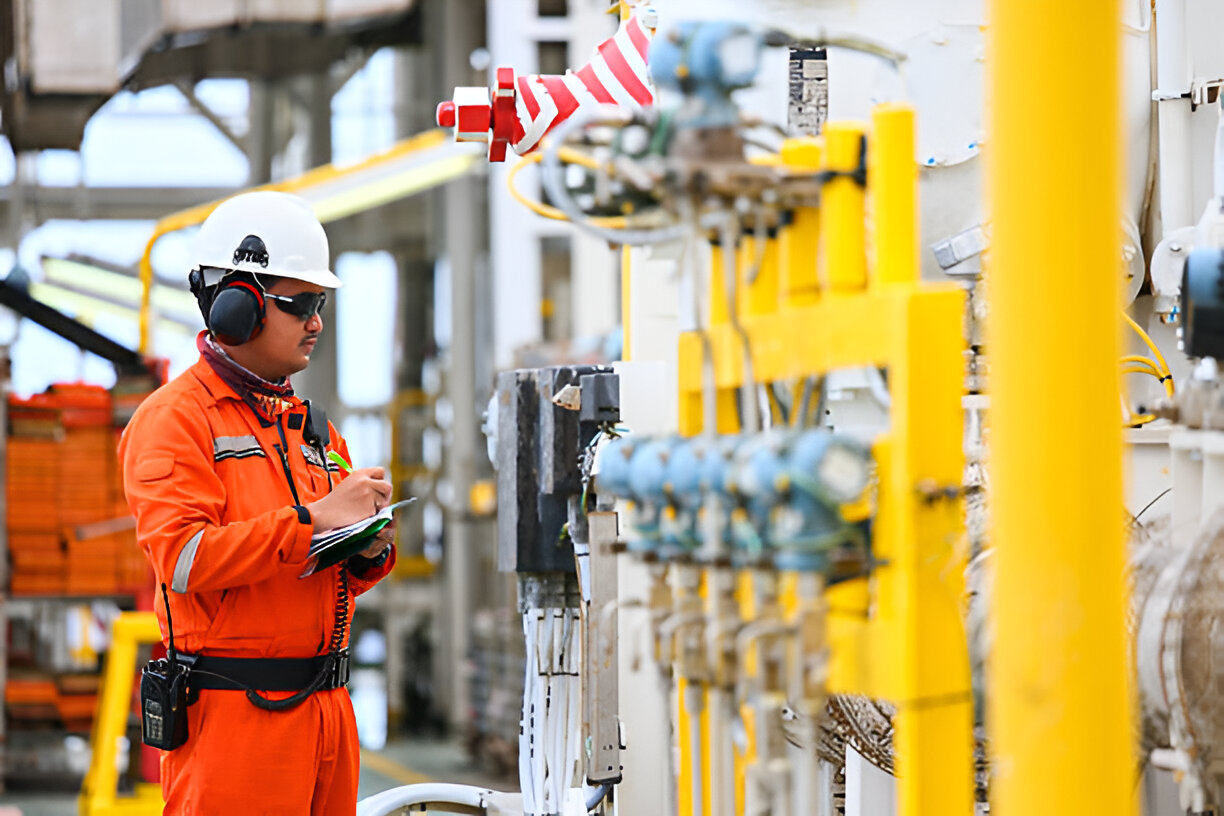
The inspection also involves reviewing installation practices to ensure they comply with industry standards. Testing devices, like gas pressure gauges, are used to confirm that appliances operate properly.
Any issues identified are documented, with recommendations for repairs or upgrades provided. After the inspection is completed, a CP42 Gas Certificate is issued, confirming that the premises meet essential safety standards and regulations, thereby protecting staff and clients.
How Often Should a CP42 Gas Certificate Be Renewed?
The CP42 Gas Certificate is primarily for any commercial premises with gas appliances. To ensure continuous safety and compliance, the certificate should be renewed:
- Annually: It is recommended that the CP42 Gas Certificate be renewed every 12 months to guarantee appliances are safe and efficient.
- Post-Modification: If significant changes are made to the gas system or appliances, a new certificate should be acquired.
- After an Incident: In the event of a gas-related incident, reassessment and renewal of the certificate are primary.
- Regulatory Changes: Should there be updates to safety regulations, the certificate may need to be renewed to reflect compliance with the latest standards.
The Risks of Operating Without a Valid CP42 Gas Certificate
Operating without a valid CP42 Gas Certificate presents serious risks beyond legal non-compliance.
Businesses risk legal penalties such as fines and shutdowns if they ignore safety regulations. Moreover, lacking this certification compromises the safety of employees and customers, raising the chances of gas leaks, fires, or explosions.
Such incidents can cause serious injuries, property damage, and even fatalities, leading to lasting reputational harm for the business. Additionally, insurance claims might be rejected if an incident happens while operating without a valid certificate, leaving the company exposed to financial risks.
Ultimately, neglecting to acknowledge the significance of a CP42 Gas Certificate jeopardises the organisation’s safety, financial health, and legal position.
Adhering to gas safety standards is significant for a safe work environment and safeguarding the interests of all stakeholders.
Benefits of Choosing a Qualified CP42 Gas Engineer
Choosing a qualified CP42 Gas Engineer provides many benefits that significantly improve safety and ensure compliance. Hiring a professional ensures gas appliances and systems are installed, maintained, and inspected in line with industry standards. This safeguards employees and customers while reducing the risk of legal problems.
- Expertise: Qualified engineers possess the necessary training and experience to identify and resolve gas-related issues effectively.
- Safety Assurance: They adhere to rigorous safety protocols, minimising the risk of gas leaks and accidents.
- Regulatory Compliance: A CP42 Gas Engineer ensures all work complies with legal standards, helping to prevent expensive penalties and operational shutdowns.
- Peace of Mind: Businesses can operate confidently, knowing that their gas systems are managed by an expert who prioritises safety and efficiency.
The Legal Penalties for Not Having a CP42 Gas Certificate
Failing to obtain a CP42 Gas Safety Certificate can result in serious legal consequences for businesses, as authorities enforce gas safety regulations strictly. Without this certification, businesses risk hefty fines that depend on the severity of the violation. In some instances, they may also face prosecution, which could lead to criminal charges against owners or managers.
Furthermore, if an incident occurs due to non-compliance, such as a gas leak or explosion, the ramifications can be catastrophic, including liability for damages and injuries. Authorities may also impose sanctions, such as revoking business licenses, which can severely impact operations.
Additionally, insurance claims may be denied if a business lacks the required CP42 certificate, exposing it to substantial financial risk.
Frequently Asked Questions
How Can I Find a Qualified CP42 Gas Engineer?
To find a qualified gas engineer, one should search online directories, consult local trade associations, or seek referrals from trusted contacts. Verifying credentials and customer reviews guarantees the engineer meets the necessary safety standards and qualifications.
What Documents Are Needed to Apply for a CP42 Gas Certificate?
To apply for the certificate, one typically needs proof of qualifications, previous gas safety records, and identification. Additional documentation may include company registration details and evidence of compliance with safety regulations relevant to gas installations.
Can a CP42 Gas Certificate Be Transferred Between Businesses?
The transferability of safety certification between businesses is typically restricted. Each establishment must independently obtain its certification to guarantee compliance with specific regulatory requirements, thereby maintaining safety standards unique to its operational environment.
What Happens During a CP42 Gas Inspection?
During a gas inspection, qualified professionals evaluate the safety and functionality of gas appliances, check for leaks, assess ventilation, and guarantee compliance with regulations, ultimately promoting safe operation in commercial environments.
Are There Exemptions for Certain Businesses Regarding CP42 Certification?
Certain businesses may qualify for exemptions regarding gas safety certification based on specific criteria, such as the size of the operation or the nature of gas usage. However, regulations vary by jurisdiction, necessitating careful review.
Conclusion
In summary, the CP42 Gas Certificate is an essential component for ensuring gas safety in commercial environments. Not only does it fulfil legal obligations, but it also protects the well-being of employees and customers. Regular inspections and adherence to safety standards can significantly lower the chances of fire risks and legal issues. Companies that focus on acquiring and keeping this certification show their dedication to safety and proper management, helping create a safer workplace.
About the Author: LandlordCertificate
Related Posts
Get Social
Recent Posts
- Electrical Diagnostic London: How Professional Testing Keeps Your Property Safe and Compliant
- Asbestos Management Survey London: Update Your Property Records
- Gas Safety Certificate London: Why Regular Checks Save Money Long-Term
- FRA London Explained: How a Professional Fire Risk Assessment Keeps You Compliant and Safe
- When a New Tenancy Requires Your EICR Certificate London Renewal


